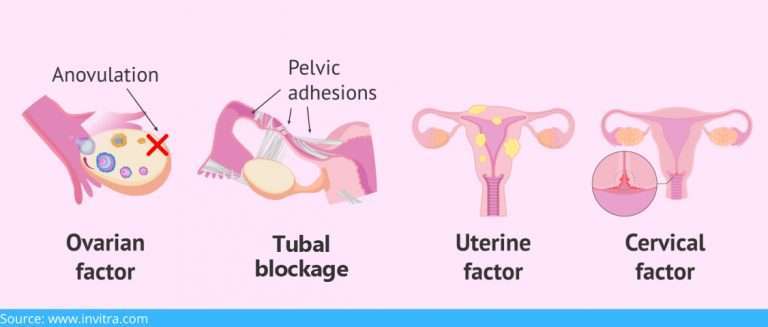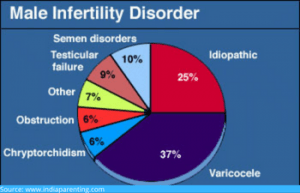It can be hard to imagine going through life without children, but infertility is a rising phenomenon as each year goes by. An estimated 1 in every 4 couples will experience fertility problems at some point in their relationship.
While many techniques have been developed to help couples conceive a child, one of the most challenging and frustrating aspects of trying to conceive naturally is figuring out why you are not getting anywhere.
Dr. Hrishikesh Pai, an accomplished infertility specialist in Delhi, says that there is no single cause of infertility. Everyone is different, and not everyone suffers from infertility the same way.
Dr. Hrishikesh Pai is one of the founders of Bloom IVF Centre, among the best IVF facilities in Delhi.
Read on to understand the causes and risk factors for infertility.
What is infertility?
Infertility is when you cannot become pregnant after attempting to conceive for 1 year. Some couples can get pregnant even when they do not want to have a child, while others cannot conceive even after a year of trying. Your chances of being infertile increase as you become older.
There are 2 types of infertility in women:
Primary: A woman who has never been pregnant and who is unable to conceive after a year of regular unprotected sex.
Secondary: Secondary infertility occurs when a woman cannot conceive after having at least 1 successful pregnancy.
What are the causes of infertility?
Throughout history, women bore the brunt of shame and condemnation if they failed to get pregnant. Fortunately, a better understanding of our anatomy and advancement in medical sciences has opened our eyes to the fact that infertility is a condition that impacts both male and female partners equally.
The causes of infertility are myriad and complex. While each couple’s journey will be unique, there are several common causes of infertility that almost all infertility patients experience at least once in their lifetime.
In women, endometriosis, uterine fibroids, and thyroid disorders are all potential causes of infertility. Men experiencing fertility issues may have low testosterone levels or a low sperm count.
However, the inability to conceive is not always caused by a medical condition. The eminent IVF doctor in Delhi, Dr. Hrishikesh Pai, points out that you may also be affected by your lifestyle choices.
Risk factors for both male and female
- Age (over 40 for men and over 35 for women)
- Excessive use of coffee and alcohol
- Smoking or tobacco use
- Stress
- Environmental pollution
- Obesity
- STDs (sexually transmitted diseases)
- Eating disorders
Causes of Female Infertility

Hormonal imbalance: The potential to conceive is influenced by the balance of hormones in your body. Hormonal dysfunctions can result in:
- Oocyte maturation problems
- Anovulation (egg fails to release during menstruation)
- Luteal phase deficiency (deficiency in progesterone required for embryo implantation and growth)
Tubal factor infertility: Tubal factor infertility is caused by a blockage or an obstruction in your fallopian tubes, which prevents your egg and your partners’ sperm from meeting. Tubal factor infertility is responsible for around 25-30 % of all occurrences of infertility in women.
The majority of the time, an infection may have damaged the tubes. It may also be due to a previous ectopic pregnancy (growth of embryo outside your uterus), scar tissue following surgery, or endometriosis.
Endometriosis: Endometriosis is the formation of the endometrium (internal mucous membrane lining your uterus) outside of the uterus (external endometrium). The causes are not yet known.
It has been suggested that a small quantity of endometrial tissue may enter your abdominal tissue via the fallopian tubes, where it clings to organs resulting in adhesions. Endometriosis causes extreme discomfort during the menstrual cycle.
Antisperm antibodies (ASA): It occurs when your immune system misidentifies sperm in the male semen as an intruder and damages or destroys it.
Anti-sperm antibodies are not common, but they can make it more difficult for couples to conceive a child. Both men and women can have them.
If you have difficulty conceiving despite trying for over a year, please consult with Dr. Hrishikesh Pai, a top-notch infertility specialist in Delhi, for a diagnosis and treatment.
Causes of Male Infertility

Impaired sperm production: Normal seminal fluid is defined as having a sperm cell count greater than 20 million per milliliter. 30% of these should be sperms that are fully formed, and at least 50 % should have good motility. It may not be possible for a man to father a child if these requirements are not met.
Functional problem: Even if the semen analysis shows normal results, some factors may still prohibit the sperm from entering your egg, such as:
- Long-term effects of a childhood mumps infection
- Varicoceles (enlarged veins in the testicles)
- Cryptorchidism (undescended testicles)
- Endocrine disorders
- Cancer surgery
- DNA damage
- Premature ejaculation
- Retrograde ejaculation (semen enters the bladder instead of exiting the penis)
Failure of sperm transportation: The vas deferens is obstructed in 4 % of cases due to which sperm cells are unable to reach the partner’s body upon ejaculation.
Other causes could be a previous vasectomy and underdevelopment or obstruction of the epididymis due to inflammation.
Do not let these problems impede your desire to father a child; please visit Dr. Hrishikesh Pai, a highly-skilled infertility specialist in Delhi.
Conclusion

Infertility can affect men and women of any age, race, and ethnic background. It does not matter whether you are married or not. If left untreated, infertility can develop into a chronic condition. This can lead to relationship difficulties, joblessness, and financial hardship in some cases. Treatment is available, but it is not something that everyone thinks they need.
The reality is that fertility is a journey, not a destination. It does not have to define you. Infertility is treatable, and you can overcome it with the proper treatment and support.
Do not wait any longer. Schedule an appointment to discuss various efficient and reliable treatment options with the famous IVF doctor Dr. Hrishikesh Pai.
With over 35 years of expertise in advanced techniques like IUI, ICSI, cryopreservation, FET IVF, and semen freezing, to name a few, Dr. Hrishikesh Pai is among the leading infertility specialists in India.

